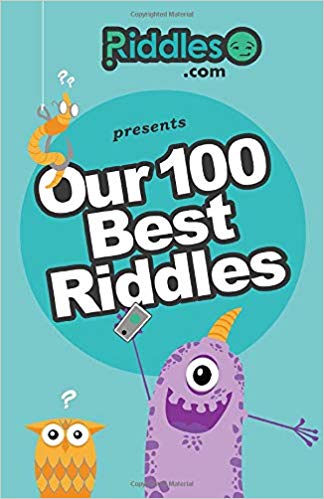Enter a keyword into the search box. The riddle search will check to see if the word is in the Title, Riddle, or Answer and return results if they exist.
"Word" Riddles - Next 10 of 298.
Riddle:
What doesn't exist, but has a name?
Answer: The word "Nothing".
Riddle:
How do you talk to giants?
Answer: By using big words.
Riddle:
Crack this riddle, take the prize; Cheat, and I shall know your lies; For I hide in your words, you see; A bond that begets your honesty. What am I?
Answer: Truth.
Riddle:
I know a word of letters three, add two and fewer there will be?
Answer: The word "few". Add "er" and it becomes fewer.
Riddle:
Coffee can go in, but tea cannot.
Riddles can go in, but questions cannot.
Quizzes can go in, but surveys cannot.
Spoons can go in, but forks cannot.
Green can go in, but red cannot.
Glass can go in, but plastic cannot.
Doors can go in, but windows cannot.
Why can some go through the green glass door and others can not?
Answer: Green Glass Door all have double letters. Therefore, only the words with double letters can pass through the Green Glass Door!
Riddle:
What can cut like a knife, sting like a bee, bite like a lion. Carry truth and lies but never move or speak. What are we?
Answer: Words.
Riddle:
I am a three letter word. If you take two letters from me, I am still the same. What word am I?
Answer: The word pea.
Riddle:
I come to you shattered and broken; And though not a word will be spoken; I will reveal to you, a world all anew; If you've the patience to make me unbroken. What am I?
Answer: A Jigsaw.
Riddle:
Add a g to my word and I disappear. What word am I ?
Answer: One. When you add a g to one it becomes gone.
Riddle:
Frank and some of the boys were exchanging old war stories. James offered one about how his grandfather (Captain Smith)led a battalion against a German division during World War I. Through brilliant maneuvers he defeated them and captured valuable territory. Within a few months after the battle he was presented with a sword bearing the inscription: "To Captain Smith for Bravery, Daring and Leadership, World War One, from the Men of Battalion 8." Frank looked at James and said, "You really don't expect anyone to believe that yarn, do you?" What is wrong with the story?
Answer: It wasn't called WWI until much later.

